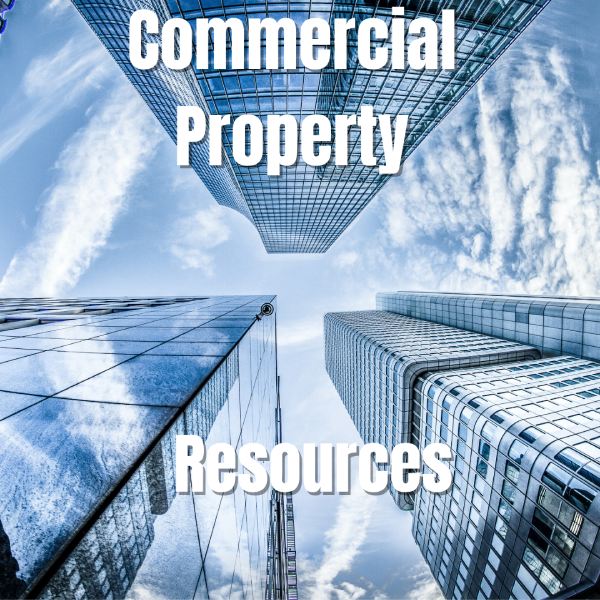Commercial property resources refer to commercial property management that focuses on providing the property owners with excellent care for their income-generating properties. Commercial properties have continued to be popular, especially with individuals that have disposable income and are looking to invest in income-generating ventures in the long term.
Before selecting a reliable and reputable commercial property resources management company, it is vital to consider various factors to ensure your business remains competitive.
As you plan to set up or reopen a commercial space, make sure to utilize real estate resource tools, especially in light of COVID 19. This article is intended for commercial real estate developers and landlords who wish to lease and develop a property for commercial use.
Tips for Reopening a Commercial Space
Prepare the Building
As property owners set up commercial space, it is paramount that some checks are conducted to ensure a safe and healthy environment. Inversely, spaces that have been vacant for a lengthy period require the same checks and assessments to ensure the space is safe.
Property owners need to conduct various assessments and audits to ensure safe opening or reopening of the building as occupants return or begin to occupy. Not all of the suggestions here will be applicable for every property. Rather, owners, operators, and building managers must use their specific knowledge of their buildings to prepare for building occupation.
Worker/Occupant Safety
Commercial space owners should ensure and insist that occupants have:
- Access to relevant (PPE) personal protective equipment, such as masks, gloves, and eye protection. These PPE’s provide additional protection from dust, allergens, and other hazards.
- A good understanding of how to properly use and dispose of personal protective equipment.
- Accessible handwashing stations and social distance is maintained.
- Applied safety practices and referred to existing regulatory and policy provisions.
- Adapted to changes that may be necessary as a result of mitigation of COVID-19 within the building.
Controls in the Property
PPE use, engineering controls, and administrative controls are three levels to help prevent diseases. These controls are intended to isolate workers from hazards. They include Steps that help ventilation and water systems operate properly.
Administrative Controls are meant to change the way people work and include employee communication strategies and policies on how a building/workplace can be used. PPE use is the last line of defense. Most organizations will implement multiple complementary controls to reopen a workplace effectively.
Adopting a Commercial Sublease Model
This is when a tenant already holds a lease to commercial property and engages a third party who wishes to rent the same space. Commercial subleasing has several advantages and disadvantages. In this section, we shall examine the pros and cons of commercial subletting.
Pros: Lower Cost
This is an advantage to the sublessee. Commercial sublease property always comes outfitted, so the sublessee has less to worry about upgrades.
For the sublessor; Subleasing can be a useful tool to reduce cost and increase cash flow. Most companies in this period require about 25% less space today than they did pre-COVID. These space-saving measures can improve a business’s profitability. Many companies may be actively choosing to sublet extra space instead of relocating.
Cons: Risk of Default
This is a potentially significant risk to the lessee. If this happens, the lessee may be denied access to the property.
This may be mitigated by the inclusion, in the agreement, of rights to recover costs and damages.
Commercial Real Estate Asset Management
Large Commercial Properties may often require professional real estate asset management firms to help monitor, manage and run the properties. In real estate management, an asset manager is required to evaluate and run a real estate portfolio, assess the property’s profitability, and identify areas for growth and advancement of the property.
A property owner may also engage the services of a third-party asset management company that can manage real estate assets for investors. Some of the functions may include:
- Conducting financial profitability of the assets, including stress tests if needed.
- Advise property owners, including improvements to improve value, increase hire prices, or ways to increase revenue.
- Provide investment strategies that can enhance the performance of the investment based on the current real estate market.
Benefits of Using a Real Estate Asset Management System
- Cash flow management a real estate manager will be able to sustainably manage the properties’ inflows at the behest of the property owner.
- Find an investor – The asset manager is in a prime position to find potential investors to improve or purchase the property.
- Lease and agreement negotiations – The manager is best positioned to draft and negotiate lease agreements on behalf of the property owner.
Bottom Line
Currently, there is much activity in commercial real estate. The workplace is changing, with tenants returning with new mandates, more expectations for a safe, digitally connected environment, and more businesses expecting flexible work opportunities. As a result, commercial property owners and operators have a multitude of responsibilities.






